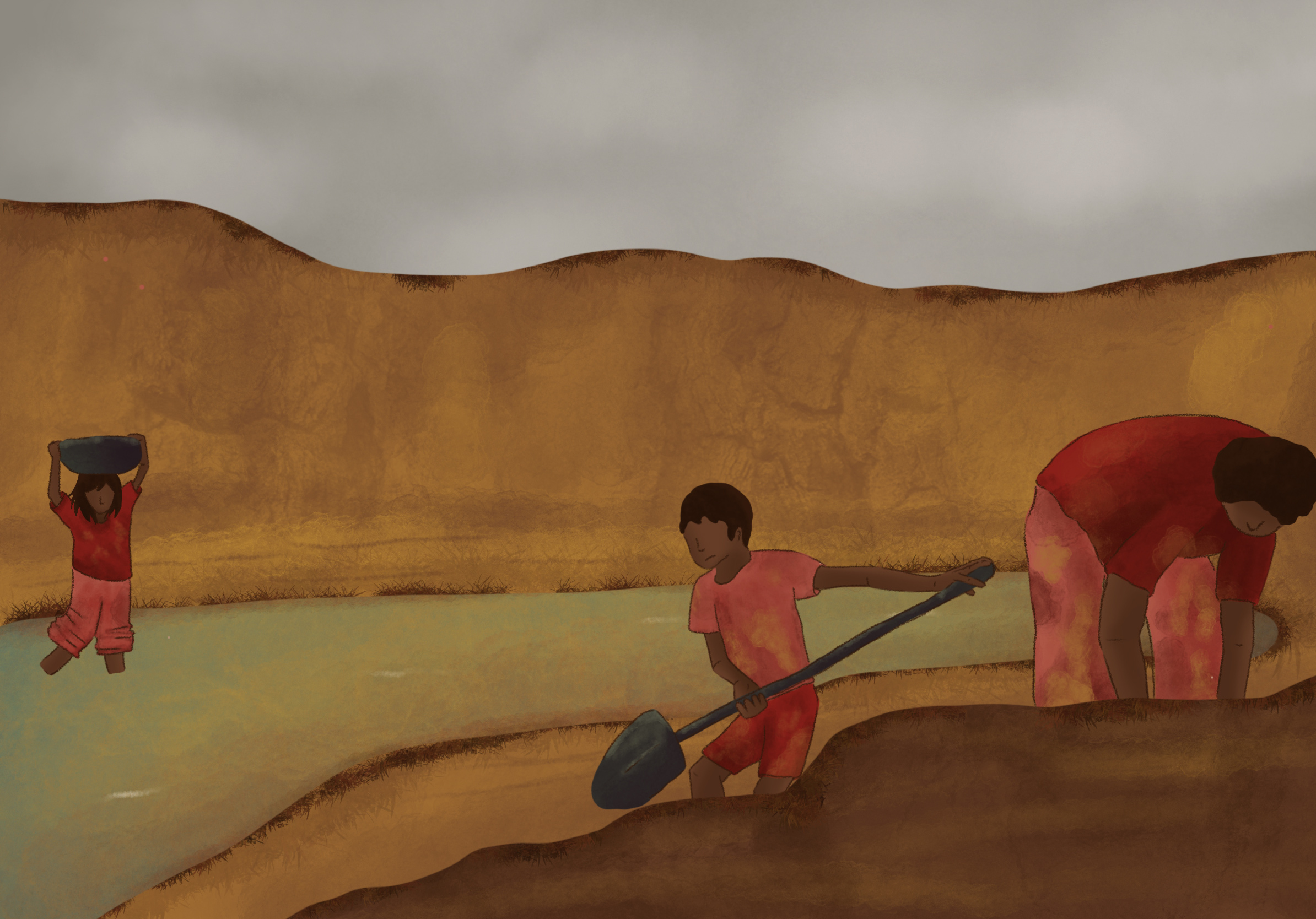
Questions about climate change
What goes on in Singapore’s Parliament?
by SG GreeniesLast year, Prime Minister Lee Hsien Loong acknowledged that Singapore must do our part against climate change, which he called “one of the gravest challenges facing humankind”.
So, how has Singapore done so far?
Singapore currently contributes to 0.11 percent of global carbon emissions—a statistic often used to imply our country’s comparatively small environmental impact.
But when it comes to carbon emissions per capita, we rank 24th in the world. Comparable to Japan’s and South Korea’s, our per capita carbon emissions are higher than that of any other Southeast Asian country, other than oil-rich Brunei.
Carbon emissions (metric tons per capita) from selected Asian countries
That’s a hefty footprint for such a small country.
Why does Singapore produce so much more carbon emissions per capita than its neighbours do? The answer lies in the country’s energy and industry sectors, which contribute 60 percent of its total emissions. Three-quarters of these emissions are from our oil refining and petrochemical sectors.
Singapore’s status as a top petrochemical hub was largely the result of state planning, in which the Economic Development Board played a huge part over the past five decades. The Singapore government has proven its ability to play an outsized role in shaping successful economies, making it a major force in curbing industry-driven climate change today.
As the country’s elections round the corner, it’s a great time to take stock of Singapore’s progress on its environment and climate change goals—as well as our elected representatives’ efforts in advancing national policies on these issues.
To figure this out, we turn to the highest law making body in the land: the Singapore Parliament. Parliament is made up of elected representatives—Members of Parliament (MPs)—who debate policies and bills before passing them into law.
Parliamentary Questions are crucial to this parliamentary process. Questions are submitted during “Question Time” for oral answers during a parliamentary session. Members of Parliament formally ask Ministers about matters under their charge, typically seeking information or pressing for action from the government. Parliamentary Questions that remain unanswered are saved for a written answer or addressed in a later session.
Ministers answer Parliamentary Questions as heads of their respective Ministries and the public agencies under them. For example, the Ministry of Environmental and Water Resources oversees the Public Utilities Board and National Environment Agency—both key organisations in the fight against climate change. Parliamentary Questions help Parliament hold the government to account by enabling elected representatives to ask questions of public interest to government ministers.
We went through the Hansard—Singapore’s parliamentary debate transcripts—to gather and analyse Parliamentary Questions about climate change and the environment between 2016 and 2020 (the tenure of the 13th Parliament), as well as press releases by ministries during the same period.
Here’s what we found.
More environment-related Parliamentary Questions are being asked in Parliament each year—an encouraging trend. A total of 277 climate-related Parliamentary Questions were asked in the 13th Parliament.
Approximately 22 percent of climate-related Parliamentary Questions are about waste.
This is no surprise, given that 2019 was designated by MEWR as the “Year towards Zero Waste” and also the year the Resource and Sustainability Bill was debated and passed. The bill brought a suite of measures tackling various streams of waste, especially around electronics, food, and packaging.
Questions about public health came in second place at 17 percent of all questions, while questions regarding conservation came in third at almost 15 percent.
Waste is an important issue that deserves attention, especially given Southeast Asia’s ongoing plastic waste crisis. Still, against issues such as our continued fossil fuel investments at home and in the region, our heavy dependence on oil, and our less-than-satisfactory climate targets, waste management is a benchwarmer when it comes to climate policies.
Leaning towards waste means we spend less time talking about the policies more relevant to climate change’s greatest impacts.
Among MPs in Parliament, Louis Ng asks the largest number of climate and environment related questions, leading his peers by a huge margin. This makes sense, given his career with the Animal Concerns Research and Education Society (ACRES) and passion for environmental causes, particularly biodiversity.
Other Members of Parliament have been proactive about climate change and environmental issues, sometimes raising hard-hitting questions about industries, emissions reduction, and the nation’s climate ambitions.
Curiously, several non-elected Members of Parliament show up among the ten most vocal climate change askers; all three Non-Constituency Members of Parliament (NCMP) and one Nominated Member of Parliament (NMP) are on the list. That’s a third of our 12 non-elected members, whereas only 7 percent of our 88 elected members make the list. It's also worth noting that Non-Constituency Members of Parliament tend to ask more Parliamentary Questions than their fellows.
Several MPs on the list—most notably Louis Ng, Leon Perera, and Anthea Ong—also actively engage the public on climate and environment issues using their social media platforms (linked above). Their outreach efforts update the electorate on climate issues and encourage public discussion.
It makes sense that questions about the environment would be directed to the ministry charged with it—the Ministry of Environment and Water Resources. That said, the Ministry of Transport, Ministry of National Development, and Ministry of Trade and Industry also often receive climate- and environment-related questions, showing how these issues require a whole-of-government approach.
Climate change is a broad topic that straddles various ministries. Consider how questions on biodiversity and conservation often fall under the Ministry of National Development—which oversees NParks—but transportation projects that affect local biodiversity (e.g., the contentious Cross Island Line) can involve the Ministry of Transport too.
Nonetheless, some ministries get asked—and tackle—more environment and climate-related questions than others. MPs would do well to consider directing questions to ministries besides their usual targets that play equally important roles in climate action.
A good climate question goes a long way in advancing policy.
Consider this question, for example:
“What steps [are] Singapore taking to (i) address climate change (ii) prioritise green and sustainable living and (iii) reduce food waste in Singapore.” —asked to MEWR (8 July 2019)
Vaguely phrased questions such as this one may emphasise environmental action, but they leave out what more should be done and specific policies that an MP might want to see implemented. Instead, check out what former Nominated Member of Parliament Mahdev Mohan asked the Prime Minister instead:
In light of reports that Singapore banks have provided loans to multiple coal power projects totalling more than US$2 billion over the last five years (a) whether these investments have any impact on the Government's proposed measures to reduce carbon emissions including that of a carbon tax; and (b) whether the banks will be required or encouraged to make public pledges to restrict lending to such projects. (19 February 2018)
Sharp questions such as Mohan's are specific, and the way questions are phrased informs how they are answered. It’s important to ask why certain questions are directed at specific ministries; do these questions build on previous work on the issue? Are ministries clarifying misconceptions and sharing data, or are they simply reiterating efforts and publicly available information?
Parliamentary Questions are a great way to shape the discussion around climate policy, help the public understand policy intentions, and figure out how to best make change happen.
The mainstream media bring important climate topics to the public, especially since Parliamentary debates are not live streamed. They thus have the potential to amplify key climate issues and policies of the day, but they also miss these out at times. Though it helped raise awareness about the role of local corporate entities in climate change issues, Mohan's question received barely any coverage in local news.
It’s clear that climate change is already an important policy priority. It is one likely to become more frequently discussed in Parliament, as the effects of climate change surface with time.
As Prime Minister Lee Hsien Loong says, the looming climate crisis threatens our island nation in several ways. From the greater spread of insect-borne diseases (e.g., dengue and Zika) to the increased risk of heat-related workplace injuries, the effects of climate change are real—and we’re running out of time to fix things.
Climate change is an urgent matter, and it requires more than just lifestyle changes that reduce our carbon footprint. How are our elected representatives addressing this topic in Parliament, and what concerns or solutions do they bring to the table?
We hope that our article provides a starting point to understanding these issues. The Climate Media Hub Facebook group, where people share and discuss news and parliamentary activities on climate change, is a great resource for keeping your finger on Singapore’s climate pulse. If you’re planning to chat with your electoral candidates and MPs around the coming elections, Greenwatch’s #AskYourCandidates offers a great list of climate questions you can ask your representatives.
This article is a joint effort by various youths involved in climate and environmental activism in Singapore, dubbed “greenies” by the Straits Times. Kate Yeo (@byobottlesg) and Woo Qiyun (@theweirdandwild) operate social media accounts that discuss climate issues. Sammie Ng is part of Speak for Climate, which is currently collaborating with SG Climate Rally on Greenwatch for the upcoming 2020 General Elections. Shawn Ang and Clifford Lok are fellow environmentalists keen on tackling climate-related issues.










